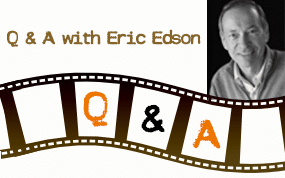Don’t Summarize!
Below is a great article written by Michael Hauge.
A common weakness among all storytellers – screenwriters and novelists as well as marketers and presenters – is the tendency to summarize.
When you write or tell a story, you are creating a movie in the mind of your readers or audiences. As they hear about your characters’ lives and actions, they create mental images of what your characters look like, where they are, and what they’re doing.
The more vivid those images, the more captivating and persuasive your story.
This means that the more detailed you are in describing settings and characters and action, the easier it will be for your readers and listeners to see the “movie” they’re watching, and the more emotionally involved they will be.
Consider the setup of your story. You must introduce your hero living her everyday life, stuck in some way, dealing with some kind of conflict that will increase our empathy for her. How can you make that setting, character and action more specific and visible?
Let’s suppose you want to introduce your hero when she is struggling to get by. So you open by saying, “Doreen is a single mom who has just suffered a financial setback.”
If you’re a screenwriter and your script begins this way, you’ve already broken a cardinal rule: never tell the reader anything the audience won’t know by watching your movie. You are only allowed to provide information and exposition using action, description and dialogue.
But even if you’re a novelist, or speaker, or marketer, this is a weak opening. Yes, you’ve given us an idea of who your hero is, and even created a bit of empathy. But the picture we get of Doreen is fuzzy and vague, because this introduction summarizes her situation.
But imagine introducing that same hero by saying:
“Doreen is sitting in her bathrobe in the kitchen of her tiny, one bedroom apartment. The rickety card table in front of her is loaded with stacks of unopened envelopes.
“As her two young daughters eat yet another meal of Spaghetti-Os, she desperately tries to figure out which bills have to be paid right away, and which can be put off for another month.”
Aren’t you immediately more involved with this woman? Feeling sorrier for her? Worrying more about her? Caring more about her?
Surprisingly, the more specific and vivid the portrait of your hero’s life (even if our own lives hardly resemble your hero’s at all), the more universal your hero becomes. But the more generalized your description, the less we will identify with that character.
Consider this passage from Drew Goddard’s brilliant screenplay for THE MARTIAN. Astronaut Mark Watney’s airlock has just experienced a leak, and the instant depressurization has blown his Hab apart and sent the airlock, with Mark inside, hurtling through the air….
INT/EXT. AIRLOCK – DUSKWHAM! The airlock hits the hillside – Mark’s body slams into the wall – his faceplate shatters – the airlock FLIPS and TUMBLES down the hill. Mark is tossed around inside like a ragdoll in a washing machine.
The airlock rolls another fifteen meters…
And comes to a stop.
INT. AIRLOCK – DUSK
Panicked breaths. Ringing ears.
Mark struggles to stay conscious. His head bleeding. Jesus Christ. What just happened?
He looks through the window. Sees the collapsed Hab. The debris of ruined equipment scattering the field between them.
Psssssshhhhhhh…
Mark wipes the blood from his brow, rolls to his knees. Struggles out of his suit. Checks his wounds. He’s alive.
Psssssshhhhhhh…
What the hell is that sound?
Air.
The airlock is leaking.
Drew Goddard could have simply written, “Mark’s airlock flies through the air, and when it crashes to the ground he hears an air leak.” But imagine how summarizing the scene that way would destroy all of its emotional impact.
We don’t just see images; we experience them. The more vivid your description and action, the more powerful your writing will be.




